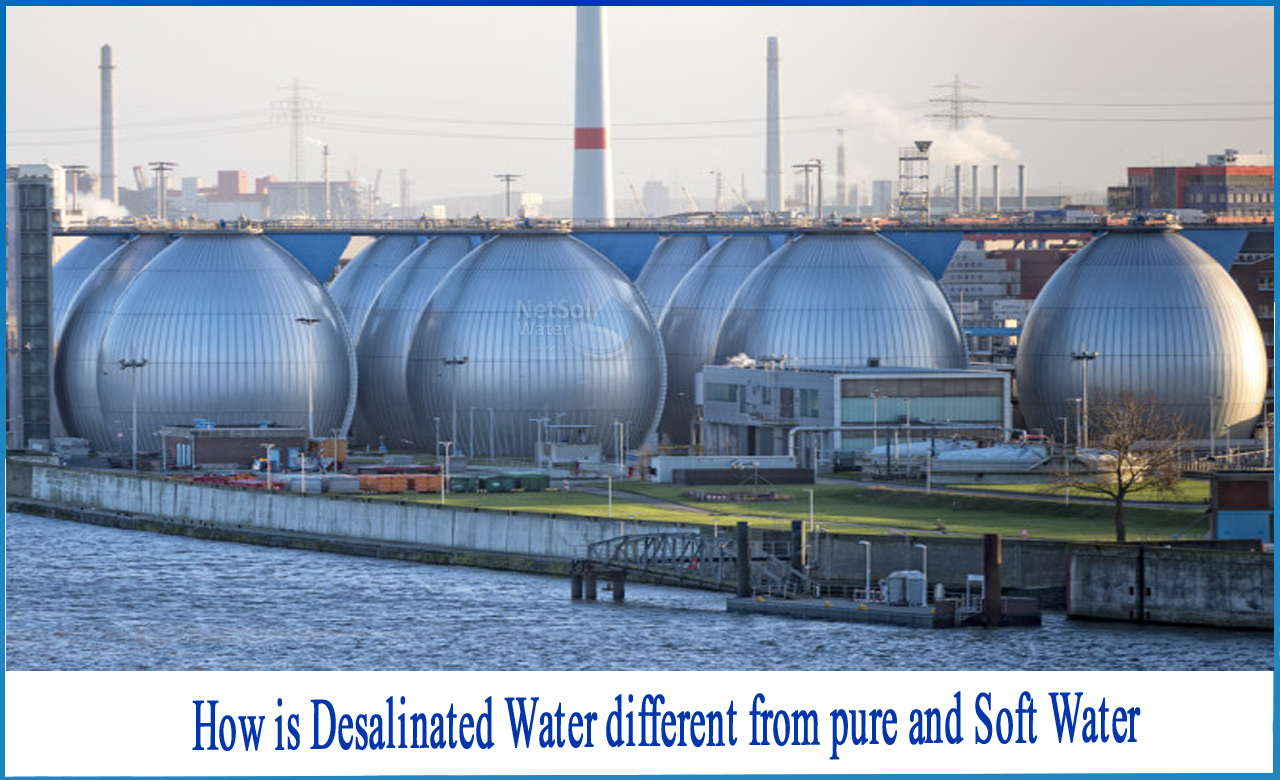What is Desalinated water?
Desalinated water is a water that has the strong electrolyte contained in it, which is easily removed. The salt concentration of the desalinated water should be between 1 and 5 mg/L.The distillation procedureinvolves heating and evaporating salty water and condensing the steam to create desalinated water.
How is desalinated water different from pure and soft water?
1: Salty water is passed through an exchange column packed with zeolite or an ion exchanger. Calcium and magnesium ions remain on the exchange column, and the filtered water is desalinated water.
2: Under the operation of an external electric field, the cations and anions in the water between the two ion exchange membranes are concentrated to the anode across the exchange membranes due to the selective permeability of ion exchange membranes to ions. As a result, the area inside the membranes becomes a fresh water area, while the area outside the membrane becomes a concentrated water area. Desalinated water is collected from the fresh water area.
What is pure-water?
Pure water, also known as deionized water, is a seal formed by electrodialysis, ion exchanger, reverse osmosis, distillation, and other appropriate processes utilizing water that fulfils the hygienic standards of drinking water as raw water. It is colourless and transparent water that can be consumed directly from a bottle without the addition of any additives.
Pure water equipment principle
The conductive medium in the water is almost completely removed using pretreatment, reverse osmosis technology, mixed bed, EDI device, and post-treatment methods, and the non-dissociated colloidal substances, gases, and organic substances in the water are removed to a very low degree of water treatment equipment.
Features of pure-water
1: High desalination rate and high-water permeability (Under typical conditions, 98 percent);
2: It has a strong retention and elimination effect on organic matter, colloids, particles, bacteria, viruses, heat sources, and other substances.
3: Low energy consumption, high water usage rate, and cheaper running expenses as compared to other types of desalination equipment.
4: The separation process is reliable and steady because there is no phase transition.
5: The equipment is small in size, simple to use, easy to maintain, adaptable, and has a long service life.
What is soft water?
Water with a hardness of less than 8is referred to as soft water. Calcium, magnesium, and other compounds are less soluble in soft water. Rain and snow are examples of soft water in nature. Spring, stream, and river water are all temporarily hard water, as is some groundwater, and distilled water is artificially processed soft water.
Soft water can make soapy water foamier because, unlike hard water, soap molecules in soft water do not easily discard sodium ions and mix with calcium and magnesium ions, allowing for a cleaner effect with less soap. It can also make hair smoother and more orderly, and taking a shower in soft water might make people feel more at ease.
Fundamentals of water softening equipment
Uses the ion exchange principle to remove calcium, magnesium, and other scaling ions from water. When hardness ion-containing raw water flows through the exchanger's resin layer, the calcium and magnesium ions in the water are replaced by sodium ions adsorbed by the resin. The resin adsorbs the calcium and magnesium ions, allowing the sodium ions to enter the water and exit the exchanger.
Features of water softening equipment
1: Automation of the water softening process: The programme control device in the water softening equipment automates the ion exchange and resin regeneration processes.
2: High efficiency: The water softener is developed in such a way that the effective working exchange capacity of the resin is completely exploited.
3: Labour savings:No extra operations required, simple installation.
4: Toxic-free:The valve body is made of lead-free brass or engineered polymers.
5: Water conservation:The water production rate exceeds 98 percent.
6: Simple to modify:The regeneration cycle and time can be changed as needed.
7: Anti-corrosion tank body:The tank body is constructed of stainless steel, glass fibre reinforced plastic, and steel lining plastic material to prevent resin contamination.
8: Broad applicability:Can be used in industrial boilers, heat exchangers, air conditioners, laundry, bathing equipment, and food, pharmaceutical, and electronics industries, among others.
What do we offer?
Netsol Water is a renowned producer of water and wastewater treatment plants. We have a reputation for being the top commercial RO plant manufacturer, industrial RO plant manufacturer, sewage treatment plant manufacturer, effluent treatment plant manufacturer, and much more. Aside from that, our USP is 24x7 customer assistance.
For further inquiry, or product-purchase-related questions, give us a call on +91-9650608473 or email at enquiry@netsolwater.com.



